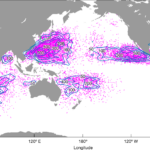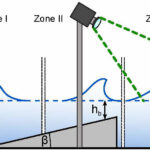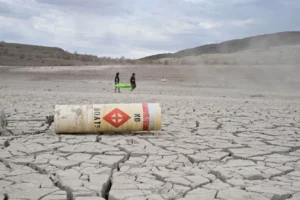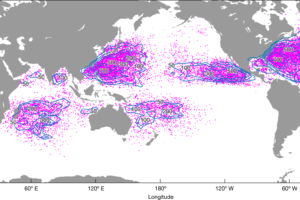Indonesia’s National Research and Innovation Agency (BRIN) has invited international collaborations for supporting the green energy transition to achieve net-zero emissions by 2060.
“BRIN supports the green energy transition toward net-zero emissions (NZE) 2060 with international collaboration and through various programs,” Deputy for Development Policy at BRIN Mego Pinandito said in a statement received in Jakarta on Thursday.
All countries in the world should unite to make the utmost efforts to build a low-carbon society by reducing global emissions by half from the current levels by 2050, he added.
Society and industry are expected to proactively take action to contribute to the creation of a low-carbon society to realize a Carbon Emission Free Indonesia by 2060.
Indonesia is committed to achieving its emission reduction targets, including net-zero emissions by 2060.
Achieving these targets will require strategic steps to reduce emissions using research, information systems, technology, and cross-sectoral collaboration between stakeholders.
“Hopefully, Indonesia’s net-zero emissions can be achieved, even before 2060, in order to provide crucial benefits for Indonesia in the environmental, social, and economic fields,” he said.
Meanwhile, a representative from the National Energy Council (DEN), Suharyati, said the DEN will conduct a review of the National Energy Policy (KEN) issued in 2019 by taking into account economic growth and issues that are currently developing, such as emission reduction commitments and Indonesia’s commitment to achieve NZE by 2060.
“KEN was later revealed to be the General National Energy Plan (RUEN). Within RUEN itself, there is already an activity program for hydrogen development. However, since it was prepared in 2014, hydrogen (program) is focused on utilizing domestic coal, not new and renewable energy,” Suharyati added.
President Joko Widodo (Jokowi) earlier expressed optimism that Indonesia will be able to become a competitive producer of green products in tandem with the development of the world’s largest green industrial area in North Kalimantan.
“The green industrial area in North Kalimantan will become the largest green industrial park in the world. I am optimistic that we would become a producer of green products that are competitive in international trade,” he noted.
The President called for continued pursuance of downstreaming and industrialization of natural resources in order to provide benefits to the national economy.
Nickel downstreaming, for instance, has led to an 18-fold increase in steel exports. In 2014, the government valued steel exports at Rp16 trillion. The figure grew to Rp306 trillion in 2021 as a result of downstreaming.
The head of state said that he expects nickel downstreaming topush up the value of steel exports to Rp440 trillion by the end of 2022.
“In addition to tax revenues, the country’s foreign exchange has increased, so the rupiah exchange rate is also more stable,” he added.
Indonesia has become a key producer in the global lithium battery supply chain, the President further noted. Electric car manufacturers from Asia, Europe, and the United States have started to invest in the country.
Apart from nickel, the government will also encourage the downstreaming of bauxite, copper, and tin, including building an integrated domestic industrial ecosystem that will support the development of the world’s green economy ecosystem.
In addition to downstreaming, the government is committed to increasing the optimization of clean energy sources and the green economy. The establishment of nurseries, the rehabilitation of tropical forests and mangrove forests, as well as the rehabilitation of marine habitats will continue to be conducted to expand the carbon sink potential.
Source: Antara News











Add Comment